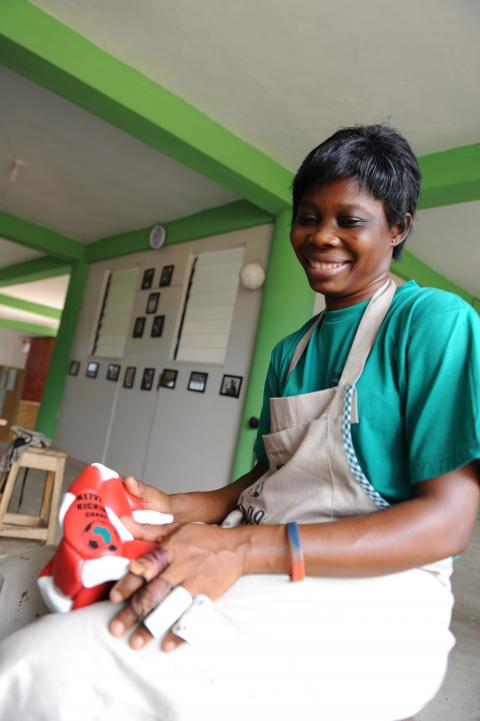You are in this section
Guest blog: Recognising the power of sport for development
Mel Paramasivan, Communications and Fundraising Manager at International Inspiration, wrote a guest blog for the Stars Foundation, which addresses the specifics of how sport for development organisations will be part of the ongoing development efforts structured around the SDGs, including examples from local organisations.
Sport needs to be seen differently
The Sustainable Development Goals (SDGs) are an opportunity for Sport for Development (S4D) organisations, like many others, to contribute to the six main themes identified by UN to achieve global change. But the argument to integrate sport into development spans wider than ensuring children have the right to play; it is about recognising sport as a tool to achieve the SDGs and gain firm recognition in the development arena.
Many are skeptical of the relevance of sport in development, but the bridge between the two is being built by International Inspiration - a S4D charity, which through the London Games delivered the largest scale sport for development programme of its kind, and now shifts expertise to mainstreaming sport in development practice. Here are examples of the themes in practice:
A renewed global partnership and adequate means of implementation
S4D occupies a unique space within private, public and non-profit sectors and has the potential for multilateral partnerships across all three. Within the private sector, sport has the opportunity to bring discussions around international development to the table, and support governments in implementing programmes that feed into the global agenda.
An example of this is the Premier Skills programme a partnership that was created by the Department for International Development (DfID) and the Premier League to address violence against women in Africa through football.
Eradicating poverty in all its dimensions and addressing inequality
Sport can build stronger communities by bringing people together and use team identities to open up dialogue around community issues. In Kenya, Moving The Goalposts (MTG) football leagues address the realities of poverty that force girls into early marriage or dropping out of school to support their families.
This holistically designed programme teaches girls about their rights and through financial literacy programmes, advises them on how to become more financially independent. This training is delivered through participation in football leagues and support from partners such as International Inspiration enables the girls to put their knowledge into practice and access grants to start their own businesses or re-enter formal education. The successes of girls now running their own businesses, returning to education and playing sports in their communities has enabled MTG to enhance the programme to reach men and boys and include them in the discussions on women’s rights - showing that sport is a language to cut across barriers.
Promoting peaceful societies and strong institutions
As young people living in poverty become more susceptible to joining gangs, violent behavior and drug trafficking, sport provides a therapy and pathway out of vulnerability.
Programmes from Luta pela Paz in Brazil, an organisation supported by Stars Foundation, is proving that sport can build stronger and more peaceful communities by using boxing and martial arts. In communities that suffer from crime and violence, sport is being used to develop and realise the potential of young people.
The strength of this model and impact has been so positive, it has been replicated in other regions.
Building strong, inclusive and resilient economies
Sport has the potential to be a social enterprise and support the development of individual and community economies. Lesotho-based organisation, Kick4Life, has created “the world’s first football club exclusively dedicated to social change” by creating a pathway through play that includes referral support services and health education.
Alive and Kicking is another example of how the local production African-leather footballs in Ghana, Tanzania and Zambia, are sold through locally trained salesmen to schools and non-profit organisations.
With support from International Inspiration, sport is providing livelihoods and sports equipment to address both economic and social needs.
Tackling climate change and achieving more sustainable lifestyles
Although the direct impact sport can have on global climate change is limited, sports events can have negative impacts on energy and waste.
There is huge potential to reduce the carbon footprint of events, as exampled by solid commitments from American collegiate and sports federations like the NBA to use recycled materials and promote efficient energy usage. The high profile of sports events and athletes worldwide is also a way of raising awareness of climate change issues.
This snapshot of sport’s relevance in the development arena and the space sport has in bringing about change and a world that is equal and just for all.
Sport has the power to bring change if we let it.
The blog was originally posted on the Stars Foundation website

